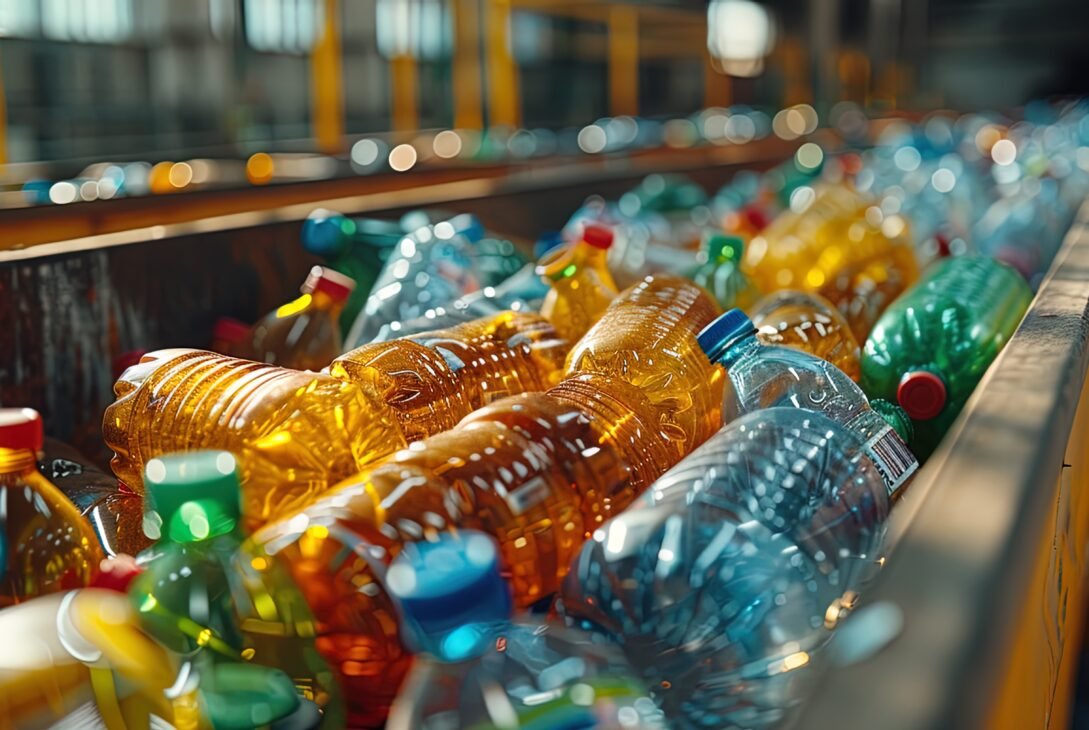The plastics manufacturing industry is a cornerstone of the modern economy, pivotal in sectors ranging from automotive to healthcare. As global demand for plastic products continues to surge, manufacturers are increasingly focusing on enhancing operational efficiencies and embracing technological innovations. One such innovation is the integration of drive controllers, which have significantly optimized the performance of manufacturing equipment. Today we’ll explore the role of advanced technologies, particularly drive controllers, in revolutionizing plastics manufacturing processes.
Overview of Plastics Manufacturing
Plastics manufacturing involves various complex processes, each requiring precise control and efficiency. The primary methods include injection molding, blow molding, extrusion, and thermoforming, among others. These processes transform raw plastic materials into finished goods through heating, molding, and cooling techniques. The quality, speed, and cost-efficiency of these operations greatly depend on the technology employed, especially in terms of machinery and equipment management.
The Role of Drive Controllers in Plastics Manufacturing
Drive controllers are critical components in the automation of plastic manufacturing equipment. They precisely control the speed, torque, and position of motors, essential for tasks such as the extrusion of plastics or the operation of injection molding machines. By ensuring that these motors operate at optimal efficiency, drive controllers help in maintaining consistent quality and reducing material waste. For example, in an extrusion process, the drive controller adjusts the motor speed to ensure that the plastic extrudes at a consistent rate, preventing variations in wall thickness and reducing the risk of defective products.
Enhancing Energy Efficienc
Energy consumption is a significant concern in plastics manufacturing, given the intensive nature of the processes involved. Advanced technologies, including energy-efficient motors and smart drive controllers, have made it possible to minimize energy use. These systems can dynamically adjust power consumption based on the load requirements of the process, significantly reducing the energy footprint of manufacturing operations.
Reducing Waste with Precision Control
Waste reduction is not only an economic concern but also a critical environmental issue. Precision control technologies, such as servo motors equipped with drive controllers, enable manufacturers to reduce excess material use and minimize scrap rates. In injection molding, precise control over the injection speed and pressure ensures that the exact amount of plastic is injected into the molds, optimizing material usage and reducing waste.
Increasing Production Speed and Flexibility
To meet the growing market demands, plastics manufacturers must maximize their production rates without compromising quality. Automation technologies, including robotics and programmable logic controllers integrated with drive controllers, facilitate faster production cycles and greater flexibility in operations. An example of this is the use of hot runners in injection molding machines. Hot runners help streamline the injection process by maintaining a consistent temperature, reducing cycle times and minimizing material waste. These technologies allow for quick changes in production setups, enabling manufacturers to switch between different product designs and molds rapidly, thus meeting diverse customer requirements more efficiently.
Improving Product Quality and Consistency
The quality of plastic products is paramount, especially in applications involving safety-critical components in the automotive or medical industries. Advanced sensor technologies and real-time monitoring systems, when combined with drive controllers, enhance the precision in manufacturing processes. This integration ensures consistent product quality by continuously adjusting the machine parameters to the ideal settings, reducing the likelihood of defects.
Adopting Sustainable Practices
Sustainability is becoming increasingly important in the plastics industry due to environmental regulations and consumer preferences for eco-friendly products. Manufacturers are turning to recycled plastics and biopolymers, which require adjusted processing conditions. Here, drive controllers play a crucial role by adapting the operation of machinery to handle different materials with varying characteristics, ensuring efficient processing and quality product output.
Workforce Training and Development
As technologies evolve, so too must the workforce. Training programs focusing on the operation and maintenance of technologically advanced equipment are crucial. Ensuring that staff are proficient with the latest technologies, including how to optimize drive controllers for various manufacturing scenarios, is essential for maintaining operational efficiency and embracing industry innovations.
Read Also: Evırı: A Unique Business Innovation
Conclusion
The plastics manufacturing industry is at a pivotal juncture, with technological advancements poised to redefine traditional practices. Drive controllers, among other innovations, are central to this transformation, offering enhancements in energy efficiency, waste reduction, production speed, and product quality. As manufacturers continue to navigate the challenges of a competitive and environmentally conscious market, the adoption of such technologies will be crucial. Not only do these innovations provide significant operational benefits, but they also align with the global push towards sustainability and reduced environmental impact. The future of plastics manufacturing, therefore, lies in the strategic integration of advanced technologies with traditional manufacturing processes, paving the way for a more efficient, sustainable, and profitable industry.
Read Also: What Is The Full Form Of XVIF? Know all Details















